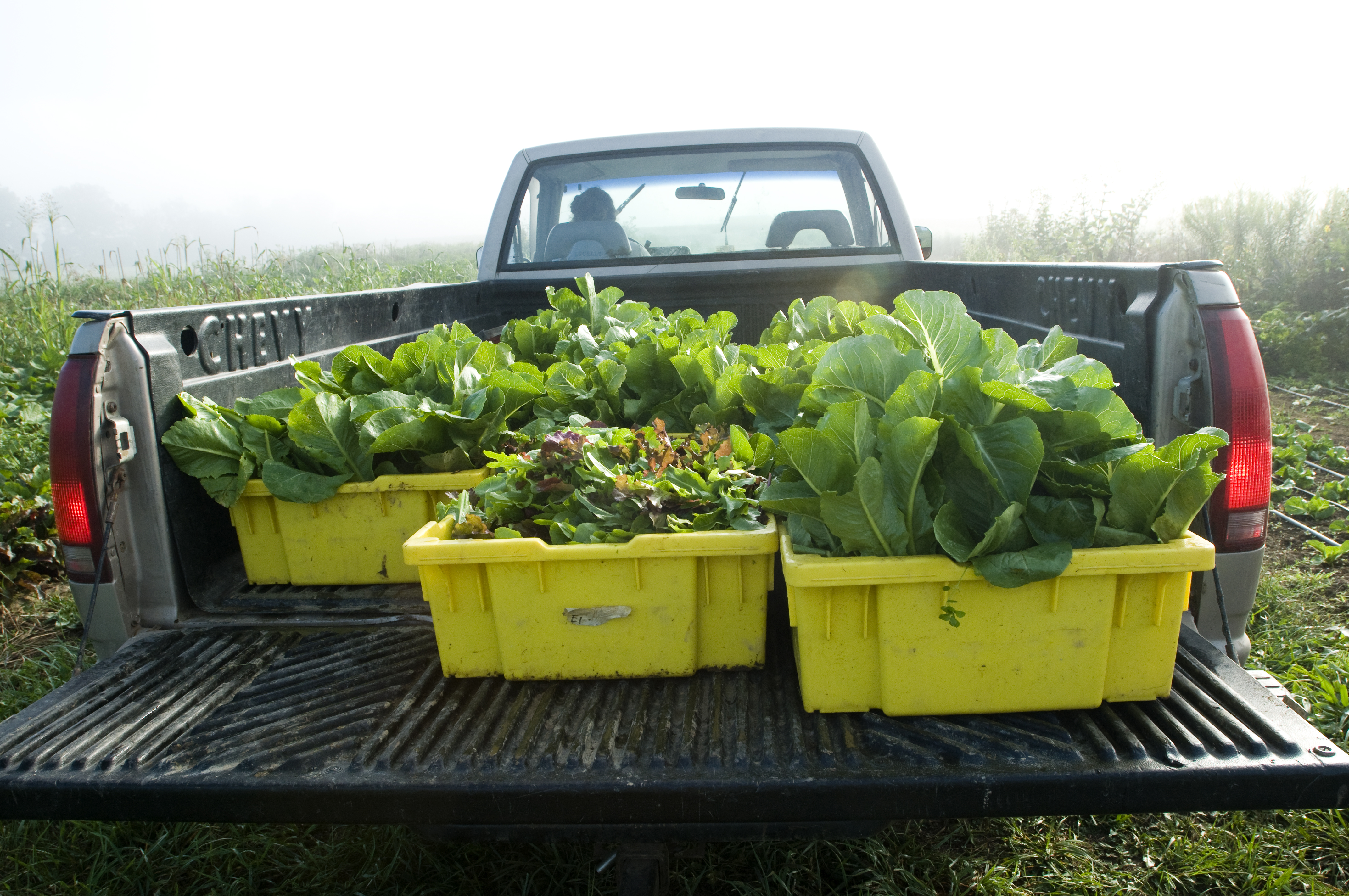Dining Services makes strides toward sustainability

At a university committed to sustainability, Dining Services plays one of the largest roles in the efforts. Elena Dulys-Nusbaum, former sustainability coordinator for Dining Services, said that she has seen huge changes since the Virginia Tech Climate Action Commitment and Sustainability Plan was signed in 2007. “Everything began to change,” she said. “We went from composting nothing in 2007 to composting over 400 tons last year in dining alone.” Dulys-Nusbaum said their programs are broken down into three categories: waste reduction and recycling, local and sustainable food production, and local and sustainable food procurement.
One of dining’s biggest initiatives is their garden plot at Kentland Farm, operated by the College of Agriculture and Life Sciences. It is in its third season of production. “It connects farm to table,” said Angie De Soto, campus sustainability planner in the Office of Energy and Sustainability. Owens Food Court’s Farms and Fields project, which is committed to providing students with local and organic foods, gets the majority of the food produced at Kentland Farm. The remainder of the food is distributed to all the other dining centers.
Chelsea Graves, garden education coordinator for Kentland Farm, said that the plot started as a small herb garden, but has grown tremendously. More than 30,000 pounds of food were produced on the farm last season. However, she said that Kentland Farm is about more than production – it’s also about education. “It’s not just learning about the crop, but learning about the entire eco-system that supports it.”
Graves said that she hopes the farm will continue to grow and eventually have a relationship with the new dining hall, Turner Place at Lavery Hall, which will open Aug. 27. As a start, Turner Place will have a small herb garden on site. “We’re bringing a snippet of the garden to Turner Place,” Graves said.
Summer brings challenges for the sustainability movement, but also time for preparation. De Soto says that plans can be developed and implemented during this downtime. The Kentland Farm garden is also in full swing with planting and harvesting.
Dining Services and Kentland Farm both foresee that their relationship will continue to grow. “There is a beautiful relationship between Kentland Farm, Dining Services, and researchers that allow people to eat the food that is grown locally,” Graves said.
De Soto, Dulys-Nusbaum, and Graves are all satisfied with the progress that Virginia Tech has made, but hope that the university can keep moving forward.
Students have been instrumental in the process of “going green”. De Soto, Dulys-Nusbaum, and Graves were all students at Virginia Tech when they first became involved. When De Soto came to Virginia Tech as a freshman in 2004, sustainability initiatives were not on the university’s radar. Over the past eight years, Virginia Tech’s commitment has grown dramatically.
- The Environmental Coalition was formed in 2005 by students. “It transformed the conversation about sustainability,” said De Soto.
- In 2007, President Charles W. Steger signed the Virginia Tech Climate Action Commitment and Sustainability Plan
- The plan’s goals were hard to meet for a school of over 40,000. “We are making incremental progress. A ship like Virginia Tech isn’t going to change direction overnight,” said De Soto.
- Virginia Tech received a silver rating from the Sustainability Tracking, Assessment, and Rating System (STARS), a program that ranks universities on their green initiatives.
- Other departments have gotten involved in the movement. The athletics department has programs such as “Sustain
Lane,” which seeks to reduce and recycle waste at sporting events. The University Bookstore offers options like book rentals and more eco-friendly products. Also, various academic departments have contributed by conducting research on sustainability.
Many opportunities are available for students to participate in the university’s sustainability efforts. Kentland Farm relies on the help of students. They had about 250 student volunteers last season. Volunteer information is posted on Kentland Farm’s Facebook page. Various internship programs are also available; the Office of Energy and Sustainability hires about 30 interns during the academic year. Students can also contribute by simply eating at Farms and Fields in Owens Food Court.






